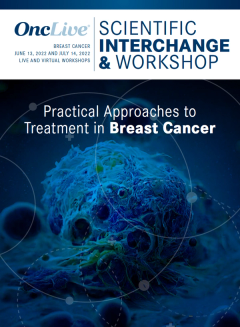
Dr Tarantino on Second-line Treatment Selection in HER2+ Metastatic Breast Cancer
Paolo Tarantino, MD, researcher, the European Institute of Oncology; clinical research fellow, Dana-Farber Cancer Institute, discusses the options available in the second line for patients with HER2-positive metastatic breast cancer.
Episodes in this series
Paolo Tarantino, MD, researcher, the European Institute of Oncology; clinical research fellow, Dana-Farber Cancer Institute, discusses the options available in the second line for patients with HER2-positive metastatic breast cancer.
The first-line treatment landscape in HER2-positive metastatic breast cancer has remained largely unchanged, with most patients still being treated with chemotherapy plus trastuzumab (Herceptin) and pertuzumab (Perjeta), Tarantino says. However, the second-line treatment arena was reshaped by the phase 3 DESTINY-Breast03 study (NCT03529110), which showed fam-trastuzumab deruxtecan-nxki (Enhertu) elicited better response rates and progression-free survival (PFS) data than ado-trastuzumab emtansine (Kadcyla; T-DM1), Tarantino explains. Specifically, trastuzumab deruxtecan demonstrated
Additionally, in the phase 2 HER2CLIMB trial (NCT02614794), tucatinib (Tukysa) plus capecitabine (Xeloda) and trastuzumab was shown to be highly effective in patients with active brain metastases, although compelling evidence also supports the use of trastuzumab deruxtecan in this population, Tarantino notes. Second-line T-DM1 might still be an effective option in frail patients or those with indolent disease, as it’s a well-tolerated and well-known drug, Tarantino says. However, trastuzumab deruxtecan has arisen as the preferred option for HER2-positive metastatic breast cancer based on recent data, Tarantino concludes.







































